Do you have what you need to make your garden grow?


Garden Center
Store Hours
Mon-Tue:
6:00am - 9:00pm
Wed:
6:00am - 5:00pm
Thu:
Closed
Fri:
6:00am - 9:00pm
Sat:
6:00am - 9:00pm
Sun:
8:00am - 8:00pm
Curbside:
09:00am - 6:00pm
Location
Popular at Your Garden Center
Garden Center Supplies
Garden Center Popular Plants
Garden Project Calculators
;Resize=(703,395.44))
Grass Seed Calculator
When you're ready to seed your lawn, our calculator helps you estimate the amount of grass seed you'll need to get the job done.
;Resize=(703,395.44))
Mulch Calculator
Enter your preferred material, the square footage and mulch depth of the coverage space for accurate results.
;Resize=(703,395.44))
Fencing Calculator
We'll calculate the amount of fencing you should purchase based on your property needs.
Shop Outdoor and Garden Brands
Frequently Asked Questions About Gardening
What can I do with the leftover wood after tree trimming or tree removal?
Log splitters leave you with more manageable chunks of wood, while wood chippers make tiny wood chips. After pruning trees and bushes with a gas chainsaw or hedge trimmers, clean up the debris in a wood chipper. If your trees are in good health, the chopped wood and bark chips make fresh mulch that you can spread around your fall flowers and plants. If you got rid of a tree, you can either get an axe or a log splitter to divide the downed tree into smaller pieces. The wood splitter will be faster and a wise investment if you're doing a large amount of tree cleanup.
How can I get rid of all these leaves?
Although it may sometimes feel like a losing battle, you can keep on top of leaf maintenance. For a light workout, a more silent cleanup method, and an economical choice, go with a rake, some work gloves, and lawn bags. We've also got leaf blowers if you'd rather use an outdoor power tool instead.
What's the best way to store my garden tools for the season?
Give your garden and yard a final cleanup for the season, then store the tools for the winter. Remove dirt and grime by soaking them in soapy water, then drying the tools thoroughly. Next, soak them in a bleach and water mix for 20 minutes to kill off any fungi or bacteria, and follow with a rinse. Then, scrub away rust specks with a wire brush, oil them with vegetable oil or WD-40 if necessary, and make sure they're dry before hanging them in a shed or garage.
How do I prepare my outdoor spigots for freezing temps?
Prepare your outdoor spigots for freezing temps by draining and covering them with faucet covers. With all hoses disconnected, turn off the indoor valves that control the spigots, then open the taps and let them run until the water stops. If you have an irrigation system or in-ground sprinklers, drain them, too, per the manufacturer's instructions. You may need an air compressor to get every last drop of water out.
What tools should I use to remove snow?
In climates where it gets cold and snowy, preparing to remove snow is key. Snow blowers are great, but keep a snow shovel around to clear trouble spots or chip away ice patches. We carry high-quality gas snow blowers and electric snow blowers. Rock salt and ice melt can clear walkways with less effort and help keep you safer when you make quick trips to the mailbox or car. Be prepared before the first snow starts falling.
The Wildwood Home Depot Garden Center
Colder temperatures often mean it's time to wrap up the outdoor work and gardening for the season. However, if it's not freezing outside and you're motivated, there are usually other projects to do. In the meantime, you can still enjoy house plants. Read on for more on final leaf and tree cleanup, indoor gardening, giving next year's garden bed a glow-up, or making the most of a break in the cold weather.
Leaf Upkeep and Tree Maintenance
Between cold snaps, you might still be able to get out your work gloves, chainsaws, pole saws, and pruners. If you haven't done it yet, focus on cleaning up and preparing for next year. Leaf maintenance is a concern even late in the season in warmer climates, so check out leaf blowers, rakes, and leaf bags. Remember a wheelbarrow and buckets to easily transport yard debris.
Indoor Plants You'll Love
Enjoy caring for indoor house plants? Watering, trimming, and attending to your plants can be calming and centering. Indoor plants can help brighten your mood, clean the air, and cheer up any room. Many types of plants will thrive indoors, from fruit trees to bonsai trees to traditional potted plants like peace lilies. Low-maintenance indoor plants are great for new or nervous gardeners, and succulents thrive with little watering. If you have furry friends, be sure to look for cat-safe indoor plants or dog-safe plants. As long as the plant pots are big enough and you follow the directions for sunlight and watering, you'll soon have a green, gorgeous indoor garden. Remember to place decorative dishes beneath them if the pots don't have built-in overflow dishes to catch any extra water.
Gardening with Air
For a different type of indoor planting, try hydroponic gardening. Hydroponics are an unconventional choice for indoor gardens. You can also keep them going year-round if the existing soil is unreliable or outdoor raised beds aren't an option. A hydroponic garden uses water infused with fertilizer and nutrients to keep plants growing in something other than dirt — like sand, rock chips, or perlite. It's an excellent way to grow vegetables and herbs. Later in the year, you can just snip an herb or pick a fresh veggie to incorporate into your meal. You can also use hydroponics to grow certain types of succulents.
Spread Nutrients
Give your house plants a nutritious place to grow with fertilizer and proper soil. Potted plants all do best with specialty potting soil. Keep in mind that succulents need a sandier soil mix that allows for drainage. For optimal results, always match your soil to your plants when transplanting to larger containers. Fertilizer replenishes and adds trace minerals and nutrients that your soil may lack. Fill in the blanks with fertilizer. We offer a variety of non-organic and organic plant fertilizers to keep your indoor plants happy and healthy.
Add Decorative Retaining Wall Blocks and Mulch
It's never too early to start planning for the spring. Measure the perimeter of your garden and crunch the numbers to see how many retaining wall blocks you'd need to surround or accent your garden. While you're at it, use our mulch calculator to figure out how much you'll need to buy when the temperatures warm. Give your garden a finished look with rubber mulch. It overwinters just fine and looks new longer than bark chips or other mulches that fade with weathering.
Warm the Outdoors with a Fire Pit
Stretch out warmer winter evenings with a fire pit, outdoor fireplace, or patio heater to take off the chill. No matter if you're looking to heat a cozy back porch, a spacious deck, or a small patio, we've got what you need. All you have to do is find the one that matches your style. We've got fire bowls and fire pit tables ready to warm your outdoor space. Check out stylish propane and natural gas fire pits in various shapes. We've also got wood-burning fire pits and the firewood to stoke them. You could also build your own using a fire pit kit or create a custom in-ground design with pavers. Stop by your local garden center to see what's in stock.
Ease Into Winter
This winter, shore up your lawn and garden for the year with us. We've got everything you need for gathering outdoors with loved ones and planning for next season. We'll be here when it's time to shop our wide variety of spring garden care and outdoor living products online, in your local store, or in our mobile app.
Nearby Stores
Find Another Store
871 North Highway 27
Lady Lake, FL 32159
7.22 mi
Mon-Tue: 6:00am - 9:00pm
Wed: 6:00am - 5:00pm
Thu: Closed
Fri: 6:00am - 9:00pm
Sat: 6:00am - 9:00pm
Sun: 8:00am - 8:00pm
10825 Us Hwy 441
Leesburg, FL 34788
15.13 mi
Store:
Pro Service Desk:
Mon-Tue: 6:00am - 9:00pm
Wed: 6:00am - 5:00pm
Thu: Closed
Fri: 6:00am - 9:00pm
Sat: 6:00am - 9:00pm
Sun: 8:00am - 8:00pm
3300 Sw 35th Terrace
Ocala, FL 34474
22.35 mi
Store:
Pro Service Desk:
Mon-Tue: 6:00am - 10:00pm
Wed: 6:00am - 5:00pm
Thu: Closed
Fri: 6:00am - 10:00pm
Sat: 6:00am - 10:00pm
Sun: 8:00am - 8:00pm
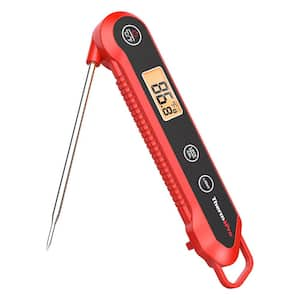
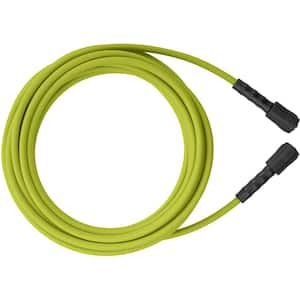
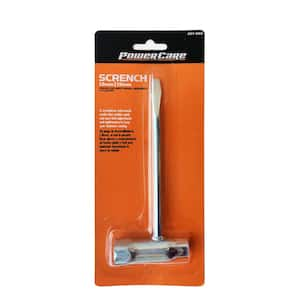
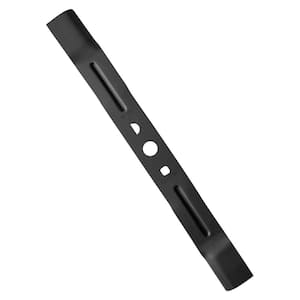
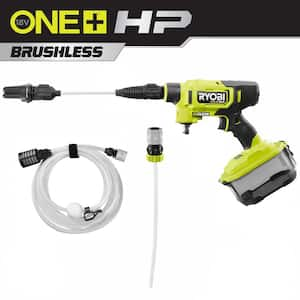
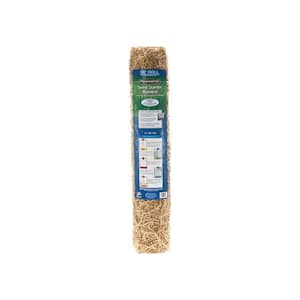
)
/17_514245_S_012_Product%20Image%20(square).jpg?im=Resize=(300,300))
)
;Resize=(300,300))
)
)
;Resize=(300,300))
)
)
;Resize=(300,300))
;Resize=(300,300))
/2021_PKG_Edging_205465972_L_Product%20Image%20(square).jpg?im=Resize=(300,300))
)
;Resize=(300,300))
;Resize=(300,300))
)
;Resize=(300,300))
.jpeg?im=Crop,rect=(363.69230769230774,1.2307692307692308,958.7692307692308,958.7692307692308);Resize=(300,300))
;Resize=(300,300))
;Resize=(300,300))
)
;Resize=(300,300))
)
)
)
;Resize=(300,300))
)
)
)
)
;Resize=(300,300))
)






































